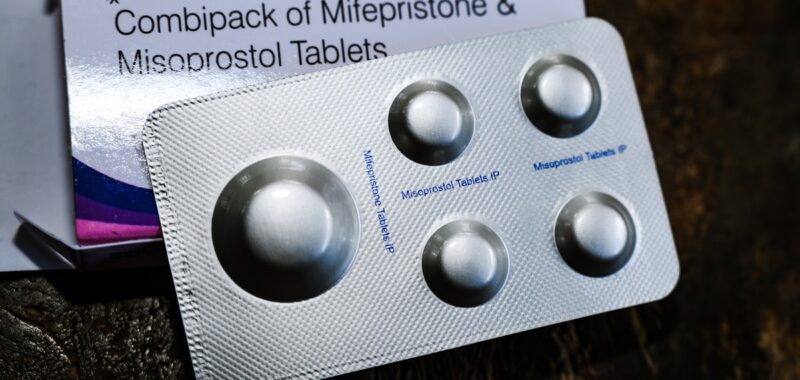Beginning October 1, Louisiana has reclassified two drugs commonly referred to jointly as “the abortion pill” — mifepristone and misoprostol — as a Schedule IV dangerous controlled substance. Obstetricians in the state are sounding the alarm that this will create barriers to care in the delivery room.
Mifepristone and misoprostol are used together to end a pregnancy. Mifepristone (which was approved by the Food and Drug Administration in 2000) is taken first to block progesterone, which supports the continuation of a pregnancy, followed by misoprostol (approved in 1988), which causes cramping and bleeding and empties the uterus. While misoprostol alone has been shown to be effective in ending a pregnancy, doctors agree that the combination of these medications is the “gold standard” of chemical abortion care.
But this ruling does not just affect abortion rights. Both mifepristone and misoprostol have a variety of uses. Mifepristone can be used for management of a miscarriage, cervical preparation for later second trimester abortion, and management of second and third trimester pregnancies when the fetus has died before birth. Misoprostol has an even wider variety of uses: so many, in fact, that it is listed on the World Health Organization’s (WHO) Model Lists of Essential Medicines. The medication is primarily used to prevent and treat ulcers in patients at risk for developing them. But in the world of obstetric care, misoprostol is used for induction of labor, cervical ripening (useful before certain surgical procedures), medical management of miscarriage, and the treatment of postpartum hemorrhage. It is that last use that has Louisiana healthcare providers worried.
According to reporting from NPR, misoprostol is routinely used in delivery rooms to manage uncontrolled bleeding after birth. So routinely, in fact, that the medication is often stored in a “hemorrhage cart” in labor and delivery rooms or even in nurses’ pockets for immediate administration as necessary. But now, as a Schedule IV drug, it will have to be locked away, possibly in an in-hospital pharmacy or other designated location. This could, they fear, lead to worse outcomes for patients as minutes and even seconds count when it comes to hemorrhage.
The move is part of SB276. In addition to the reclassification of these medications, the law provides more stringent punishment on anyone found to have committed or attempted to commit “coerced criminal abortion by means of fraud.” This essentially refers to someone who would try to abort someone else’s pregnancy without their knowledge or consent, chiefly by surreptitiously giving them abortion pills. The bill is also known as the Catherine and Josephine Herring Act, so named for a Texas woman (Catherine) whose husband attempted to end her pregnancy by sneaking misoprostol into her drink. (Her daughter, Josephine, survived the attempt.) But while there is no evidence of such crimes being terribly common, and there is no record in recent years of such a crime being committed in Louisiana, per reporting from the Associated Press.
Moving forward, anyone who knowingly possess mifepristone or misoprostol without a valid prescription, for any purposes, can face a $5,000 fine and up to five years in jail. Notably, the law does not apply to pregnant women who obtain the drug for their own purposes, even if they don’t have a prescription. In keeping with Louisiana abortion law, abortion seekers are not criminalized, but abortion providers face fines, jail time, and the loss of their medical license.
Abortion is effectively banned in Louisiana, and is one of four states that actually forbid abortion at a constitutional level. There are no exceptions for rape. The state currently ranks fifth in the nation for both infant and maternal mortality. The March of Dimes Annual Report Card has given it an F. The Annie E. Casey Foundation has ranked it 49th in its 2023 report on childhood well-being.

